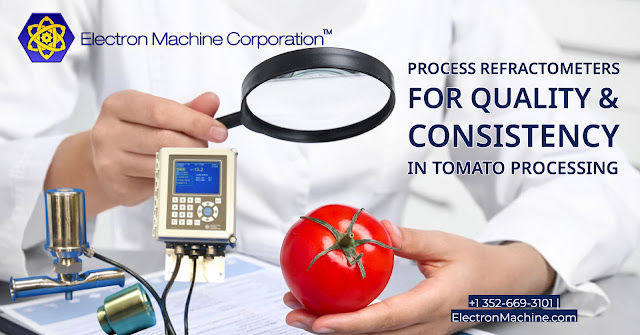A process refractometer is a device that measures the refractive index of a liquid, which is a measure of how much the light passing through the liquid is bent. The refractive index of a liquid is influenced by the concentration of dissolved solids in the liquid, such as sugars, proteins, and other compounds.
In the context of fruit juice production, inline process refractometers are used in the production of fruit juices to measure the concentration of soluble solids in the juice as it is being processed. The concentration of soluble solids is an important quality parameter in fruit juice production because it determines the sweetness and flavor of the juice. Feedback from the refractometer adjusts the concentration of the juice by adding or removing water or other ingredients to achieve a desired level of sweetness or other desired characteristic.
To use an inline process refractometer in the production of fruit juices, a small sample of the juice is analyzed directly in the production line through the refractometer's measurement prism. The refractometer then measures the refractive index of the juice sample as light passes through the sample. The refractive index is directly related to the concentration of soluble solids in the juice, so the refractometer can calculate the total dissolved solids (TDS) of the juice by using a pre-determined conversion factor.
By accurately measuring the concentration of dissolved solids in the juice, a process refractometer can help to ensure that the juice meets quality standards and has a consistent flavor profile. It can also be used to optimize the juice production process by helping to identify bottlenecks or inefficiencies and allowing for adjustments to be made to improve efficiency and reduce waste.
Inline process refractometers are typically used in conjunction with other process control instruments, such as pH meters and temperature sensors, to ensure that the juice is being produced to the desired specifications. They are also commonly used in the production of other beverages, such as beer and wine, as well as in a variety of other industrial processes.
Overall, the use of a process refractometer can help to improve the quality of fruit juices by ensuring that they meet desired standards for sweetness, flavor, and other characteristics, and by helping to optimize the production process.






